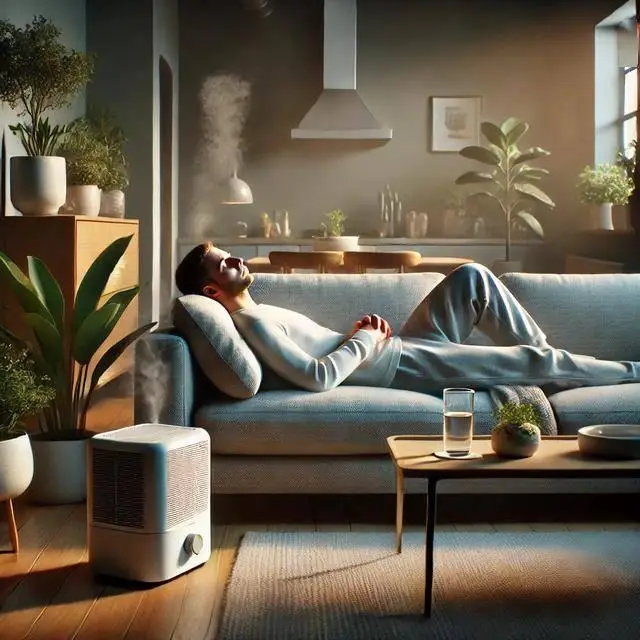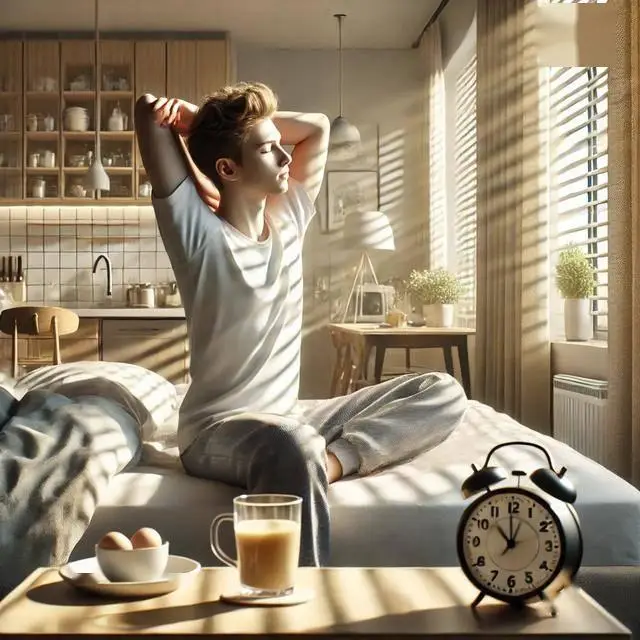Moderate caffeine intake alone doesn't directly cause arrhythmias in most healthy adults. However, when combined with staying up late, along with stress, dehydration, and fasting, it can amplify the sensation of palpitations and increase the amplitude of cardiac electrophysiological fluctuations, potentially contributing to a "push" in susceptible individuals.

• Why does staying up late and drinking coffee cause the heart to "beat"?
When we don't sleep at night, our sympathetic nervous system is cranked up to high gear, causing catecholamine levels to rise and our heart rate and blood pressure to become restless. Caffeine then temporarily silences adenosine receptors, suppressing any drowsiness that would otherwise occur and making cardiac muscle cells more susceptible to external stimuli.
If this is combined with being in a closed, dry, air-conditioned room, water loss isn't replenished in time, leading to a slight decrease in blood volume and a slight shift in electrolytes. The heart is like dancing on an unstable floor—the rhythm tends to accelerate.
Staying up late also disrupts circadian rhythms, disrupting the "baton" handover between the vagus nerve and the sympathetic nervous system. This reduces heart rate variability, weakens the body's ability to buffer against stimuli, and causes previously negligible premature contractions ("thumps") to become jarring.
For people without structural heart disease, this is mostly just a brief discomfort. However, for those with pre-existing myocardial damage, thyroid dysfunction, anemia, or electrolyte imbalances, the triggering threshold is lower, naturally increasing the risk of arrhythmia.

• How much coffee is considered "too much"? Why does the threshold vary from person to person?
Amount and timing are more crucial than whether or not to drink. It's generally recommended that adults limit their total daily caffeine intake to a relatively safe range and spread it out earlier in the day.
The threshold should be lowered for those who are pregnant or breastfeeding, have underlying cardiovascular conditions, are prone to anxiety, or are particularly sensitive to caffeine. Even with the same cup of Americano, some people may feel alert while others experience a pounding chest. Genetic differences (such as how quickly caffeine is metabolized), gastrointestinal absorption, body weight, and liver and kidney function can all alter individual dose-response curves. Even more alarming is the "invisible stacking" effect: coffee, strong tea, energy drinks, and certain cold medicines or pre-workout supplements (which often contain caffeine or similar ingredients). When these ingredients interact, the body's "stimulus meter" quickly reaches a high point.
Rather than memorizing one or two cups, it's better to develop a sense of your own threshold: when your palms sweat, your chest feels empty, and your attention wanders, you've crossed the line and need to put the brakes on immediately.
• What should I do if I have palpitations? What are the signs that you shouldn't push through?
First, "cool down." Stop the caffeinated drink, leave the noisy area, take slow, deep breaths, sit or lie down, drink warm water, and sip frequently to allow the vagus nerve to take over the brake pedal.
In most cases, the discomfort will subside within a few to ten minutes. If your heart rate remains significantly elevated, accompanied by chest pain or tightness, dizziness, or even blackouts, or if the symptoms recur, with each one being more severe than the previous, then it's not something you can simply "rest for."
In particular, those with structural heart disease, hyperthyroidism, anemia, or long-term use of stimulant medications should seek medical attention as soon as possible when experiencing palpitations. For those who experience occasional "missed beats" but they are frequent, prolonged, or accompanied by very irregular rhythms, doctors may recommend an electrocardiogram (ECG) or Holter monitoring to determine which rhythm is causing the problem and determine whether further treatment is necessary.

• What are the safest approaches to reducing triggers?
More feasible than completely eliminating coffee is to "maintain your rhythm and reduce peak intake."
- Treat sleep as a core variable: Maintain consistent sleep and wake-up windows. Even if you're busy, try not to completely eliminate your nighttime rest. If you don't have enough the night before, reduce your caffeine intake the following day rather than increasing it. 2. Restructure your intake: Choose a weaker brew, drink in small, split doses rather than guzzling it all at once, avoid emptying your stomach, and avoid combining coffee with alcohol or nicotine. Gradually withdraw from coffee in the late afternoon to allow room for nighttime rhythms to recover.
- Prevent "interference" with the chorus: If energy drinks, strong teas, certain decongestant nasal drops or cold medicines, or pre-workout supplements are unavoidable, limit the total intake and avoid coinciding with late-night activities.
- Don't skip hydration and electrolytes: Proper hydration and a healthy diet can keep blood volume and electrolytes within a more stable range, making heart muscle cells less sensitive to any disturbances.
- Give your nervous system a break: Simple relaxation techniques like short walks, warm showers, stretching, and breath-holding and slow exhalation can calm overexcited sympathetic nerves.

Stay up late and drink coffee, and you might mistakenly believe you have a life-saving button, but you often tune your heart to a more clamorous beat. Instead of demonizing coffee or using youth as a talisman, it is better to acknowledge the boundaries of the body - sleep is the root, dosage and timing are the branches, environment and mood are the wind.

%20--%3e%3c!DOCTYPE%20svg%20PUBLIC%20'-//W3C//DTD%20SVG%201.1//EN'%20'http://www.w3.org/Graphics/SVG/1.1/DTD/svg11.dtd'%3e%3csvg%20version='1.1'%20id='图层_1'%20xmlns='http://www.w3.org/2000/svg'%20xmlns:xlink='http://www.w3.org/1999/xlink'%20x='0px'%20y='0px'%20width='256px'%20height='256px'%20viewBox='0%200%20256%20256'%20enable-background='new%200%200%20256%20256'%20xml:space='preserve'%3e%3cpath%20fill='%23FFFFFF'%20d='M194.597,24.009h35.292l-77.094,88.082l90.697,119.881h-71.021l-55.607-72.668L53.229,232.01H17.92%20l82.469-94.227L13.349,24.009h72.813l50.286,66.45l58.148-66.469V24.009z%20M182.217,210.889h19.566L75.538,44.014H54.583%20L182.217,210.889z'/%3e%3c/svg%3e)




